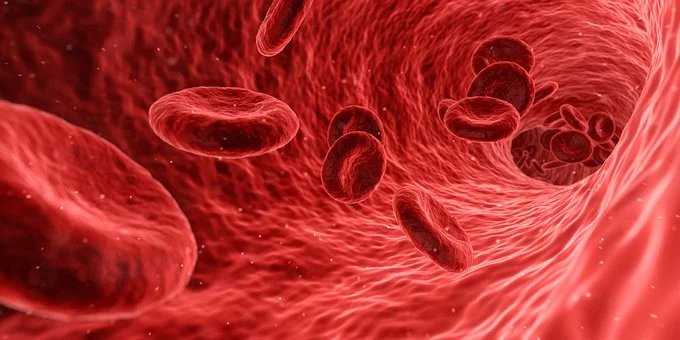108Views 0Comments

Exercise and physical activity can have a substantial impact on the immune system, which is extremely relevant to the practice of physiotherapy.
Frequent exercise helps increase the immune system by boosting the generation of antibodies and immunological cells. Exercise can improve immune function. This can lessen the risk of developing chronic illnesses including cancer, diabetes, and cardiovascular disease and protect against infectious diseases.
Increased production of immune cells: Regular exercise can lead to an increase in the production of immune cells, such as natural killer cells, T cells, and B cells, which can help to fight off infections and diseases.
Reduced stress: Exercise can help to reduce stress, which can have a negative impact on the immune system. Stress can lead to the production of cortisol, a hormone that can suppress the immune system.
Improved antibody response: Exercise can help to improve the production of antibodies, which are proteins that help to identify and neutralize harmful pathogens.
Improved lymphatic circulation: Exercise can help to improve lymphatic circulation, which is important for immune function. The lymphatic system helps to remove waste and toxins from the body and plays a critical role in fighting infections.
Exercise can lower inflammation: Autoimmune disorders and chronic pain are just two conditions that are accompanied by chronic inflammation. Frequent exercise can aid in reducing bodily inflammation, which can enhance general health and lower the risk of developing chronic illnesses.
Exercise can assist to manage chronic conditions: For people who have long-term conditions like multiple sclerosis or arthritis, exercise can help to control symptoms and enhance general health. This can be done via increasing mobility, easing discomfort and inflammation, and strengthening the immune system as a whole.
Exercise can enhance mental health: Research has demonstrated that exercise and physical activity can enhance mental health by lowering stress and anxiety, enhancing mood, and boosting self-esteem. This may be especially important for people who are managing a chronic disease or injury.

Understanding how exercise and physical activity affect the immune system is essential for physiotherapy practice. Physiotherapists can collaborate with patients to create exercise regimens that are suitable for their particular needs, taking into account any chronic illnesses or injuries they might be experiencing. By doing so, you may be able to increase your general health and wellbeing, lower your chance of developing chronic diseases, and manage your existing problems better.
While creating treatment programs for patients with immune-related disorders including autoimmune diseases, physiotherapists should take the immune system’s response to exercise into consideration. The development of safe and efficient treatment regimens that can enhance general health and quality of life can be aided by an understanding of how exercise can affect the immune system.
Exercise and physical activity have a substantial impact on the immune system, which is particularly pertinent to the practice of physiotherapy. Physiotherapists can create efficient treatment strategies that advance general health and wellbeing by comprehending the advantages of exercise and how it may affect immune function.
Physiological changes of exercise

Exercise can lead to numerous physiological changes in the body. Here are some of the key changes that occur during and after exercise:
Increased heart rate: During exercise, the heart rate increases to pump more blood and oxygen to the working muscles.
Increased respiratory rate: The respiratory rate also increases to supply the working muscles with more oxygen and remove carbon dioxide.
Increased blood flow: Exercise leads to an increase in blood flow to the working muscles to supply them with oxygen and nutrients.
Increased oxygen consumption: The body’s demand for oxygen increases during exercise to support the increased energy demands of the working muscles.
Increased production of heat: Exercise produces heat as a byproduct of energy metabolism, which helps to regulate body temperature.
Increased metabolism: Exercise leads to an increase in metabolism, which can help to burn calories and improve weight management.
Increased muscle activation: Exercise stimulates the muscles to contract, which can lead to improved muscle strength and endurance.
Increased release of hormones: Exercise can lead to the release of hormones such as endorphins, which can improve mood and reduce stress.
Increased production of waste products: Exercise can produce waste products such as lactic acid, which can lead to fatigue and muscle soreness.
Increased energy production: Exercise can lead to increased production of ATP, the primary energy source for the body.
Overall, exercise leads to a complex set of physiological changes that can have numerous health benefits. These changes can improve cardiovascular function, increase muscle strength and endurance, improve metabolism and weight management, and improve mood and overall well-being.
Takeaway message
Exercise has a significant impact on the body, leading to numerous physiological changes that can improve overall health and well-being. Regular exercise can lead to increased cardiovascular function, improved muscle strength and endurance, better metabolism and weight management, improved mood, and reduced stress. In physiotherapy practice, understanding the impact of exercise on the body is critical for developing safe and effective treatment plans for clients. By promoting physical activity and exercise, physiotherapists can help individuals achieve their health and wellness goals, and reduce the risk of chronic illnesses.


